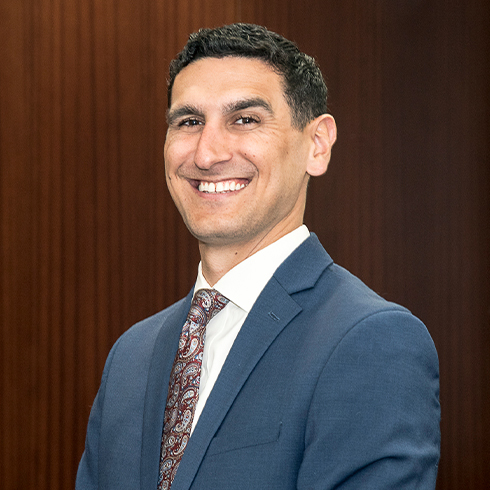Medical malpractice is a serious and often devastating issue that affects many individuals and families across Maryland. The complexity of these cases makes it critical to understand the different types of malpractice claims and the numerous challenges involved in pursuing them. Whether it is a surgical error, misdiagnosis, medication mistake, or childbirth injury, the impacts of medical malpractice can leave victims dealing with long-lasting consequences. In Maryland, navigating the legal landscape surrounding these claims can be particularly daunting due to the intricate rules governing medical negligence. This discussion delves into the most common forms of medical malpractice cases in Maryland and the unique obstacles victims face when trying to seek justice.
Surgical Errors
One of the more recognizable forms of medical malpractice is surgical error. Many people associate these mistakes with the most dramatic of scenarios, such as a surgeon leaving a tool inside a patient or operating on the wrong body part. However, surgical errors can also involve less obvious but equally harmful mistakes, including performing the wrong procedure, puncturing an organ, or failing to properly sterilize instruments. These errors often lead to serious complications such as infection, prolonged pain, or the need for corrective surgery.
Surgical malpractice cases are fraught with challenges. First, proving that a surgical mistake rises to the level of malpractice can be difficult, as it requires demonstrating that the surgeon’s conduct fell below the standard of care expected in the medical field. Additionally, patients may face resistance from healthcare providers who are often unwilling to admit fault. Hospitals and insurers frequently have teams of attorneys whose primary goal is to minimize liability, which can make it difficult for a victim to build a successful case without legal assistance.
Misdiagnosis and Delayed Diagnosis
Another prevalent form of medical malpractice involves misdiagnosis or delayed diagnosis. This occurs when a healthcare provider either fails to recognize the symptoms of a particular illness or diagnoses the wrong condition altogether. For example, a doctor might mistake the signs of a heart attack for acid reflux, or they may dismiss the warning signs of cancer as a benign condition. A delay in proper diagnosis can allow a medical issue to worsen, potentially reducing the chances of recovery or leading to more aggressive and invasive treatments than would have been necessary if the condition were identified earlier.
Misdiagnosis cases present numerous legal and medical challenges. For one, it can be difficult to prove that a delay in diagnosis directly caused harm to the patient, particularly if the patient had an underlying condition that was already severe. There is often a debate over whether the patient’s outcome would have been different if the diagnosis had been made sooner. Furthermore, these cases frequently involve a detailed analysis of medical records, test results, and consultations with medical professionals, all of which can be complicated to sift through. In Maryland, establishing that the misdiagnosis resulted from negligence rather than a reasonable medical judgment requires a thorough understanding of both the law and medical procedures.
Amazing firm. Went above and beyond in making me feel welcomed, informed, and at ease considering the serious reasons for me being there. It was my first time dealing with something like this and it was comforting knowing I had a whole team behind me working to get the best outcome possible which they did. Highly recommend this firm to anyone looking for a good reliable lawyer who will work with you and be considerate of your well being.” - Daniel Torres
Medication Errors
Medication errors constitute another common form of medical malpractice and can have severe consequences for patients. These errors occur when a healthcare provider prescribes the wrong medication, administers an incorrect dosage, or fails to consider potential adverse interactions with other drugs the patient is taking. Medication mistakes can cause anything from mild discomfort to life-threatening reactions or even death.
Pursuing a medication error case comes with its own set of hurdles. Often, it is difficult to determine where the error occurred within the chain of care. Did the doctor prescribe the wrong drug, or was the mistake made by a nurse or pharmacist during administration? Even if an error is identified, proving that it constituted medical malpractice requires showing that the mistake would not have occurred if the healthcare provider had followed the accepted standards of care. This often involves examining complex medical records and may require consultation with healthcare professionals.
Birth Injuries
Birth injuries are particularly tragic, as they affect the most vulnerable members of society—newborns and their mothers. These injuries can occur during prenatal care, labor, or delivery and can result from a range of factors such as improper use of delivery tools, failure to monitor the baby’s oxygen levels, or delays in performing a necessary cesarean section. The consequences of a birth injury can be catastrophic, potentially leading to lifelong disabilities like cerebral palsy or Erb’s palsy.
Value of a Personal Injury Case Choosing a Personal Injury AttorneyRelated Videos
Legal challenges in birth injury cases often center around the difficulty of proving causation. Because birth injuries sometimes result from complications that are not necessarily attributable to medical negligence, the burden of proof is on the victim to demonstrate that the healthcare provider’s actions or omissions directly led to the harm. Additionally, birth injury cases frequently involve large hospitals with powerful legal teams that vigorously defend against claims of malpractice. This makes it essential for plaintiffs to gather extensive evidence and consult medical professionals to substantiate their claims.
Anesthesia Errors
Anesthesia errors, though less common than other forms of medical malpractice, can have devastating outcomes. Mistakes during the administration of anesthesia can lead to brain damage, stroke, paralysis, or even death. These errors might occur because the anesthesiologist fails to monitor the patient adequately, administers the wrong type or amount of anesthesia, or neglects to review the patient’s medical history for possible complications.
Anesthesia malpractice cases are challenging because the exact cause of the injury can be difficult to pinpoint. For example, some complications that arise during surgery may not be solely attributable to anesthesia errors but could involve other factors. Additionally, proving that the anesthesiologist’s actions directly caused the injury requires a deep understanding of the medical processes involved. Maryland’s legal standards require victims to demonstrate that the anesthesiologist’s conduct deviated from the accepted norms in their profession, which can be an uphill battle without strong legal representation.
Verdicts & Settlements
Infection and Sepsis from Improper Sterilization
Improper sterilization during medical procedures can result in patients contracting infections or sepsis, a life-threatening response to infection that can lead to tissue damage, organ failure, and death. Hospitals and clinics are expected to follow stringent protocols to ensure that equipment and facilities are sterile. When these standards are not met, patients are placed at serious risk.
Cases involving infections caused by improper sterilization are difficult to prove. Healthcare providers often argue that infections are a known risk of many medical procedures and that the infection may have been the result of other factors, such as the patient’s underlying health conditions or their failure to follow post-operative care instructions. Establishing that the infection was due to medical negligence often requires an in-depth investigation of hospital practices, as well as consultations with medical professionals who can attest to the standards that should have been followed.
Challenges in Proving Medical Malpractice in Maryland
Pursuing a medical malpractice case in Maryland presents significant legal and procedural challenges. One of the most notable hurdles is the requirement for a certificate of merit. Before a lawsuit can be filed, Maryland law mandates that the plaintiff obtain a certification from a qualified medical professional stating that the care provided fell below the accepted standards of care and that this deviation caused the patient’s injuries. This adds an additional layer of complexity, as plaintiffs must first find a healthcare professional willing to testify on their behalf, a process that can be both time-consuming and costly.
75% of people who are injured due to someone else's negligence don't believe they could pursue an injury claim. 95% of personal injury cases are settled pretrial. Typically, only about five percent of personal injury claims will go to trial. $0 is the amount it will cost you to contact us and start your personal injury claim. Reach out for a free consultation.Personal Injury Statistics
Moreover, Maryland imposes strict caps on non-economic damages in medical malpractice cases. This means that victims cannot recover unlimited compensation for things like pain and suffering, even if the harm they suffered is severe. As of 2024, the cap on non-economic damages in medical malpractice cases is $890,000, with an incremental increase each year. This cap poses a significant challenge for plaintiffs who have endured immense suffering but may not be able to recover full compensation for their emotional and physical pain.
The statute of limitations also poses a barrier to filing a successful malpractice claim. In Maryland, a patient generally has five years from the date of the malpractice or three years from the date they discovered the injury, whichever is earlier, to file a lawsuit. Failure to file within this time frame typically results in the claim being dismissed, no matter how strong the case might be.
Given these challenges, it is crucial for victims of medical malpractice to work with a dedicated legal team that can navigate the complexities of Maryland law and help them pursue the compensation they deserve.
If you or a loved one has suffered due to medical malpractice in Maryland, you need a law firm that understands the complexities and challenges of these cases. At Alpert Schreyer, LLC, our experienced legal team is committed to providing compassionate representation and fighting for the justice and compensation you deserve. We understand the devastating impact that medical negligence can have on your life, and we are here to guide you through every step of the legal process. Contact Alpert Schreyer, LLC today to schedule a consultation and take the first step towards holding negligent healthcare providers accountable for their actions.
















